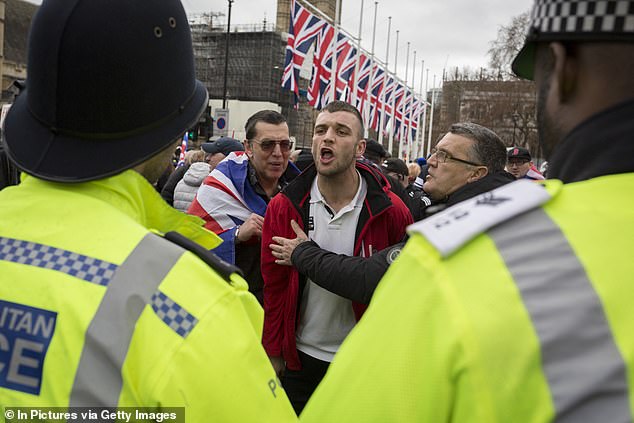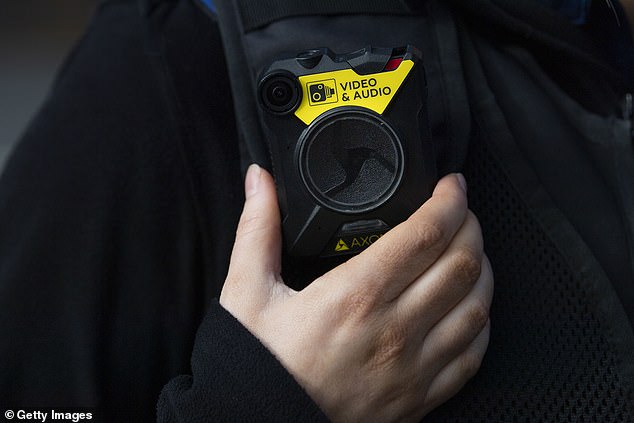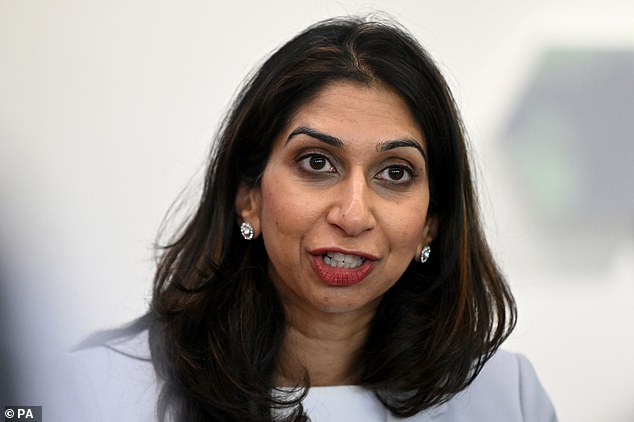Police continue to record hundreds of small disputes as “hate incidents” despite ministers telling them to deal with serious crimes instead.
Forces across the country are recording details of trivial arguments between neighbours, drunken rants and online disputes if callers say they have been offended.
In a case now filed as a race-related non-criminal hate incident (NCHI), a pub patron accused Welsh bar staff of refusing to serve him because he was English, but said he was simply drunk.
Elsewhere, even as traditional crime detection rates have plummeted, forces have recorded hate incidents in which business owners have taken issue with negative online reviews and parents have complained about that schoolchildren were making fun of a classmate on TikTok.
This comes despite the Home Office telling police last year that they should stop recording all reports of alleged hate and should ignore those where no hostility or intentional prejudice can be proven.

Forces across the country are recording details of trivial arguments between neighbours, drunken rants and online disputes if callers say they have been offended (file image)


A body camera similar to those used by the police. The Home Office told police last year they should stop recording all reports of alleged hate and should ignore those where no hostility or intentional prejudice can be proven (file image)
Last night, former Home Secretary Suella Braverman, who imposed restrictions on hate incidents that law enforcement is ignoring, told the Mail: “The police seem to have a lot of time to record these often trivial incidents and yet antisocial behaviour, drugs and shoplifting. remains unresolved.
‘As Home Secretary I changed the guidelines to raise the bar on when data should be recorded. It seems that the police still intend to subvert these rules. They are disappointing the public. The police need to do better.”
NCHIs, which do not count as crimes but can appear in screening checks on job applicants, were created in the wake of the murder of Stephen Lawrence as a way for police to monitor levels of racism across the country.
However, security forces were later accused of using them to punish people for “thought crimes”, and the Government attempted to restrict their use after a landmark High Court free speech case, won by the former police officer Harry Miller, who was investigated after tweeting about transgender rights.
In a code of practice published by the Home Office last June, police were told: “The perception of hostility or prejudice on the part of a complainant or any other person alone is not sufficient, in itself, to justify conducting an NCHI registry. ‘
Incidents considered irrational, malicious or trivial should be ignored, while the personal data of alleged offenders can only be kept on file if there is a real risk that their behavior will lead to a crime.
But now civil liberties group Big Brother Watch has obtained figures from 32 of the 46 police forces in England and Wales showing they recorded 6,489 NCHI between June and November last year. Call records show that while some of the incidents involved racist or homophobic abuse, many others did not meet the criteria set by the Home Office.


Former Home Secretary Suella Braverman, who imposed the restrictions on hate incidents that law enforcement is ignoring, told the Mail: “The police seem to have plenty of time to record these often trivial incidents and, without However, anti-social behaviour, drugs and theft are on the rise. irresolute’
Miller, who set up the group Fair Cop to campaign against “police attempts to criminalize people for expressing opinions”, said: “Hate is an everyday emotion, like love or envy, and the police have no right to record except when attached to a crime or where it means that a crime is about to occur.
“Being offensive or expressing an uncomfortable opinion is not the police’s business.”
Jake Hurfurt, head of research and investigations at Big Brother Watch, said: “It is worrying that police forces across the country continue to record social media comments and schoolyard disputes over law enforcement systems.” .
‘Police should register NCHIs only where there is strong evidence of hate and should seek to protect, rather than limit, freedom of expression. Resources should be focused on the criminal world, rather than monitoring non-criminal transgressions.’
Conservative MP Rachel Maclean, who had a hate incident reported against her last year for sharing an online post describing a trans woman as a man in a wig, said: ‘In my opinion it’s time to stop for completed NCHI recording; after all, there is no evidence that they lead to keeping anyone safer.’


Conservative MP Rachel Maclean (pictured), who was hit with a hate incident last year for sharing an online post describing a trans woman as a man in a wig, said: ‘In my opinion it’s time to completely stop NCHI recording; After all, there is no evidence that they lead to keeping anyone safer.
Police in North Wales recorded 77 NCHIs, including a father who complained that his son’s classmates had insulted him on TikTok. In another, marked “racial”, a complainant said staff refused to serve him at a pub in Bala because he was English, but they said it was because he was drunk.
Greg George, head of diversity at North Wales Police, said: ‘North Wales Police complies with Home Office guidance. The perception of hostility or prejudice can be subjective and linked to a number of factors.’
Norfolk Police recorded 57 NCHIs, including one in which a business owner said he is “getting bad reviews on social media and local websites” for “being foreign.” A spokesman for the force said he had reduced NCHI numbers by 50 per cent.
Lancashire Police, which recorded 159 NCHIs, recorded one in which someone found a social media post about the conflict in Israel “disturbing”. The force said it had introduced guidelines for staff “to ensure incidents are accurately recorded”.
The Home Office said: “The legal code of practice on the recording of non-crime hate incidents stipulates that they should only be recorded where absolutely necessary and proportionate.” Personal data may only be recorded if there is a real risk of significant harm or a future criminal offence.’
